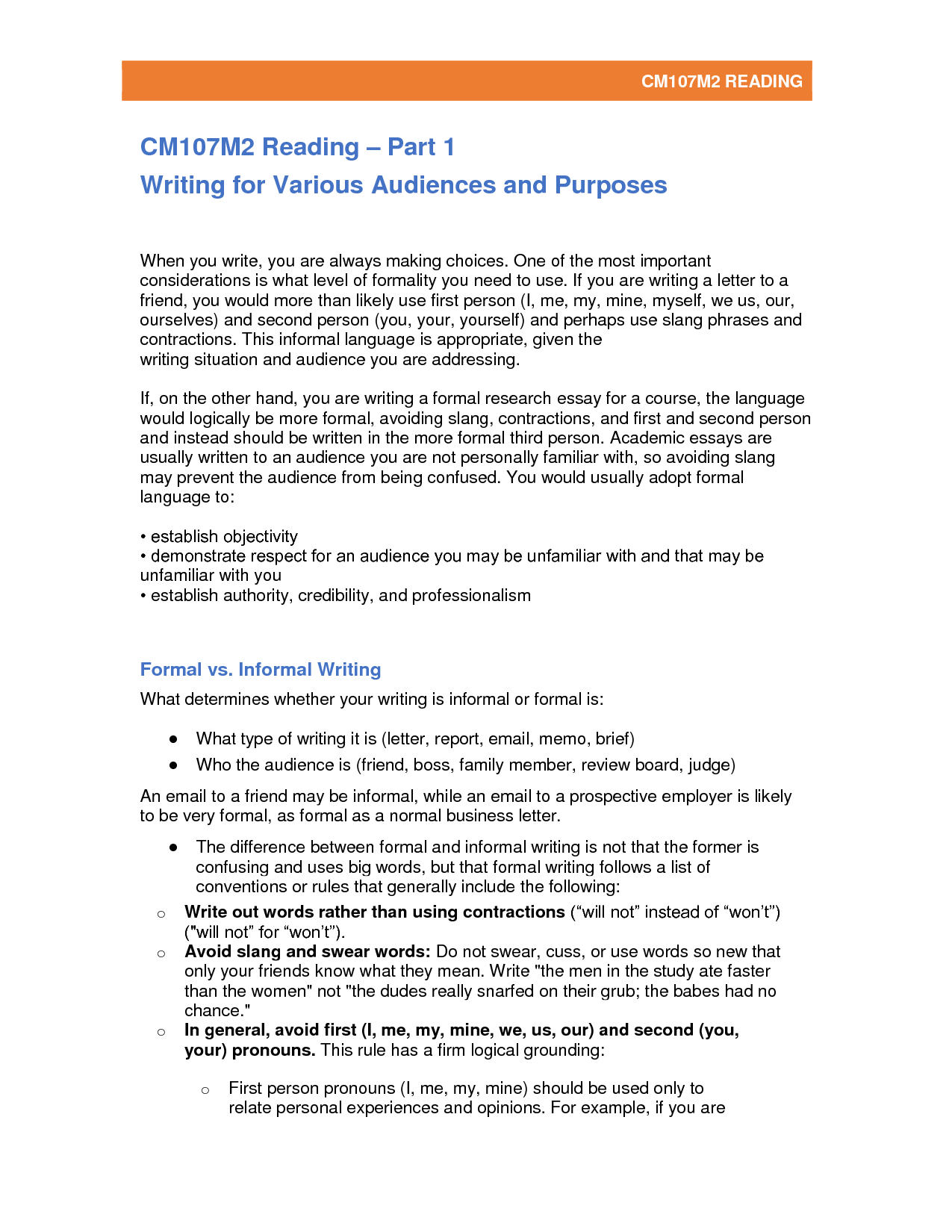Many students ask themselves “should I write my coursework in first person?”. The answer to this question depends on the nature of the work. Some writers write in first-person, while others choose to avoid it entirely. Regardless of the choice, using first-person pronouns makes the writing easier to read, and will also help your audience understand your point of view. Listed below are some tips to help you make the right choice.
Avoiding contractions in first-person pronouns
When writing coursework, you should avoid using contractions in first-person pronoun usage. This is a common linguistic problem, especially in formal writing. Pronoun contractions are shortened versions of two words, which is considered informal language. Instead, use ‘it’s’ to show possession. A good way to avoid contractions in formal writing is to check your professor’s instructions for specific rules.
While it’s common to use contractions in conversational conversations, they’re not appropriate for writing for a formal audience. While you can use contractions in conversations with friends, it’s better to avoid them in formal writing. They can make your writing less clear, and can make it difficult to understand. For this reason, it’s best to stick to first-person pronouns if you’re writing for a professor or judge.
There are some instances where scholars must deviate from the rules. Some instructors may insist on strict compliance with these rules, but there are plenty of good reasons to break these rules. Using “I” can be awkward, but it can improve your style and add authority to your work. If you’re writing for a teacher, a good example of using “I” in first-person pronouns in academic writing is when you describe an event or experience in your life.
Drawing readers’ attention to the essay
When writing coursework in first person, a good opening paragraph is crucial to grabbing the attention of the reader. It should introduce the topic, its objective, and provide background information to the reader so they can understand the arguments made in the essay. Next, a body paragraph should follow. Using a third-person voice is often a good choice for writing an essay, but it may be too personal for academic purposes.
Sounding objective
If you’re a college student, writing coursework is an important part of your education. Unless your professor explicitly states otherwise, the subject matter should sound objective. Be clear about the purpose of your course, whether it is to “teach” students a particular skill or to “assess” their knowledge of a topic. Using the pronoun “I” to refer to yourself, for example, sounds more objective than “I” or “we” would.
Avoiding second-person point of view
Academic writing generally avoids using the second-person point of view. This style can seem too casual for formal writing and alienate readers because they cannot identify with the idea presented. As a result, overcrowded classrooms are more often than not accompanied by long lines of people waiting to buy groceries on a Saturday afternoon. In some states, there are very few rehabilitation programs. Moreover, if you’re writing coursework for a class that requires you to express your own feelings, you may want to avoid using the second-person point of view.
In addition to confusing your reader, writing in the second-person point of view can make your work appear as if you’re giving directions or giving advice to others. Instead of connecting with your audience, you should use the third-person point of view for academic writing. To do this, you can avoid using the first-person pronoun, such as “I” or “we.” When writing coursework in the third-person, you should avoid using the second-person pronoun.

